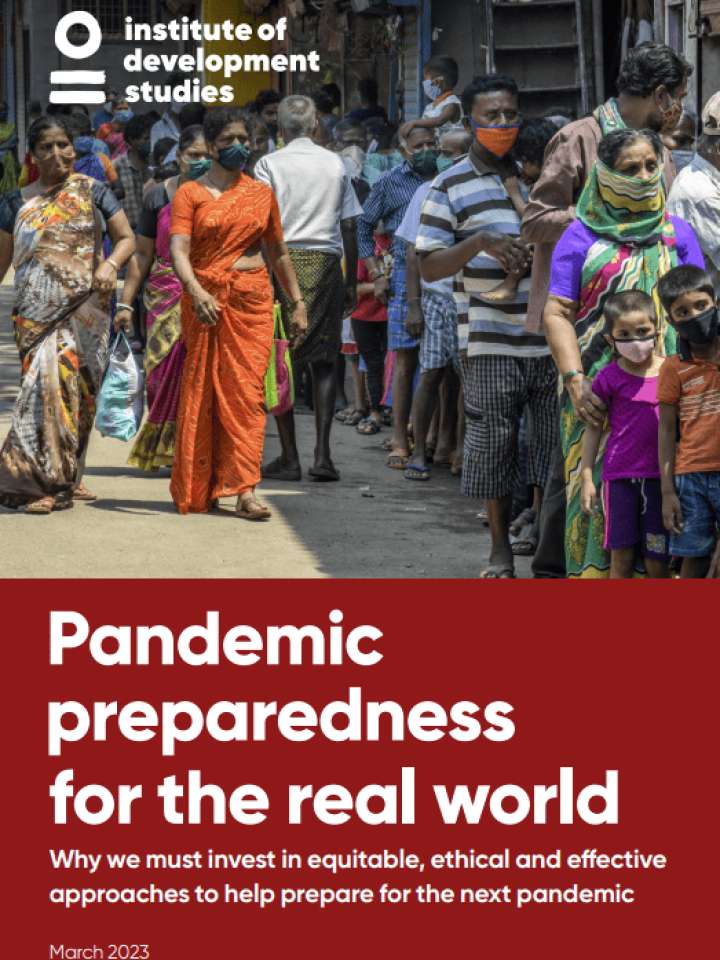Pandemic preparedness for the real world: Why we must invest in equitable, ethical and effective approaches to help prepare for the next pandemic
This paper presents here a framework for a vision of pandemic preparedness for the real world – one that accepts that context is paramount, embraces inclusivity and justice, shifts power centres and rejects simplistic, one-size-fits-all solutions. The cost of the Covid-19 pandemic remains unknown. Lives directly lost to the disease continue to mount, while related health, livelihood and wellbeing impacts are still being felt, and the wider ramifications across society, politics and the economy are yet to fully materialise. What is known about these costs though, is that they have been unequally distributed both within and between countries. Preparedness plans proved inadequate in many settings – especially when it came to protecting those most vulnerable, including those marginalised by geography, poverty, or exclusion along the lines of religion, ethnicity or gender.
This paper argues for fresh approaches across five priority action areas for pandemic preparedness:
- Professionals: Identifying, supporting and rewarding key people in critical infrastructures introduces much-needed reliability into uncertain and complex contexts.
- Knowledge: Creating opportunities and building mechanisms to account for diverse knowledge, expertise and evidence facilitates preparedness which is better adapted and more responsive to local contexts and acceptable to communities.
- Resilience: Redressing the inequitable underlying conditions that leave people and communities vulnerable to crises in the first place is the best route to ensuring they can withstand shocks.
- Institutions: Addressing the crisis of confidence in state institutions is part and parcel of pandemic preparedness.
- Ethics: Policymaking and decision-taking for pandemics necessarily embrace a wider set of issues than accounted for by conventional bioethics and its focus on individual rights.
Explore further
